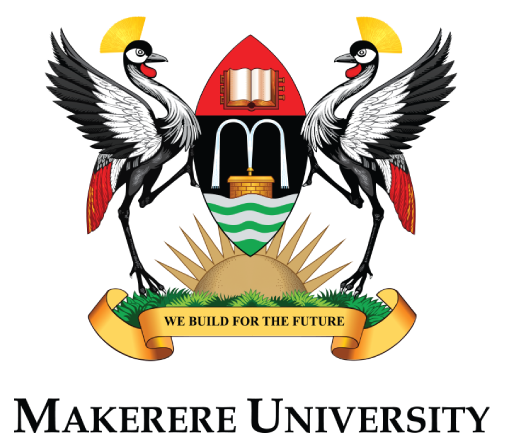Nabukenya Sylvia, Ochieng Joseph, Kaawa-Mafigiri David, Munabi Ian, Nakigudde Janet, Nakwagala Frederick, Barugahare John, Kwagala Betty, Ibingira Charles, Twimwijukye Adelline, Sewankambo Nelson, Mwaka Erisa Sabakaki
Abstract
This study aimed to explore experiences and practices of key research team members in obtaining informed consent for pharmacogenetics research and to identify the approaches used for enhancing understanding during the consenting process. Data collection involved 15 qualitative, in-depth interviews with key researchers who were involved in obtaining informed consent from HIV infected individuals in Uganda for participation in pharmacogenetic clinical trials. The study explored two prominent themes: approaches used to convey information and enhance research participants’ understanding and challenges faced during the consenting process. Several barriers and facilitators for obtaining consent were identified. Innovative and potentially effective consenting strategies were identified in this study that should be studied and independently verified.
Background
Treatment of HIV/AIDS with antiretroviral therapy has drastically increased life expectancy for infected African populations, transforming a once highly fatal disease into a long-term condition (Ross et al., 2015). Anti-retroviral therapy is a life-long treatment and associated with a wide range of adverse drug reactions. The need for optimizing therapeutic responses and preventing adverse drug reactions has led to the growth of pharmacogenetic testing. Pharmacogenetic testing involves the “analysis of genes associated with drug targets, metabolism and other relevant pathways to predict drug effectiveness and/or likelihood of an adverse response for a given drug” (Haga and Mills, 2016: 1595). Host genetic variability has been shown to play a role in both antiretroviral drugs bioavailability and adverse effects susceptibility (Mayne et al., 2017). Pharmacogenetics is a relatively new field of research in Uganda and this means that very little is known about it, especially by laypersons from which research participants are usually drawn. Consequently, to facilitate adequate understanding of information that is provided to research participants during the process of obtaining consent, there is a need for innovative and effective approaches to participant education. The consenting process not only provides participants with relevant information to facilitate informed and voluntary decision-making, but also prepares them for receiving the findings of testing and enhances the likelihood of understanding the test results (Haga and Mills, 2016). Further, among other things such as respect for individuals’ autonomy and self-determination, an effective informed consent process is fundamental for avoiding the exploitation of research participants.
As the technologies used in the search for improved treatment and care for people living with HIV (such as pharmacogenetics research) are evolving, a unique set of ethical, legal, and social issues (ELSIs) are arising that require further exploration to ensure adequate protection of research participants, communities, and researchers (Adebamowo et al., 2018; Akinyemi et al., 2018; Eisenhauer et al., 2019; Mulder et al., 2017; Zhong et al., 2017). Navigating these unique ELSIs calls for a more robust consenting process beyond that which is employed in more familiar types of research. However, there is limited empirical research from sub-Saharan Africa regarding consent for genetics research (Haga and Mills, 2016; Tekola et al., 2009; Tindana et al., 2012). Empirical research suggests that researchers encounter several challenges in practice when obtaining consent from potential research participants, particularly in low resource settings (Tindana et al., 2006, 2012). There are concerns about research participants’ ability to understand the concepts of genetics research, sample storage for future use, and the potential risk of stigma or exploitation of study communities (Adebamowo et al., 2018; Marshall, 2004). This has partly been attributed to low literacy (Krosin et al., 2006), difficulties in translating scientific terms into local languages (Adebamowo et al., 2018), and difficulties with processing large amounts of information in a time-limited setting (Corneli et al., 2012). Literature has indicated that therapeutic misconception, whereby research participants believe that the research is being conducted primarily for their own benefit rather than for creating generalizable knowledge or the benefit of future patients, also poses a problem in some settings (Appelbaum et al., 2002; Dehority, 2021; Thong et al., 2016). A number of studies reveal poor understanding of genetics research by participants in resource-limited settings (Chokshi et al., 2007; Corneli et al., 2012; Marsh et al., 2010; Marshall et al., 2006; Masiye et al., 2017; Ogunrin et al., 2019; Tindana et al., 2012; Traore et al., 2015). Thus, since adequate comprehension of information is required for informed consent to be valid, it is imperative to inquire into how participants’ comprehension is being verified or can be enhanced by researchers. It is the responsibility of the researchers to ensure that the information is adequately understood by the participants. In an effort to fulfill this responsibility, researchers have come up with various innovative approaches for enhancing participant comprehension of study information, including enhanced written information, use of flyers and booklets (Falagas et al., 2009); multimedia tools and technologies such as audio-visual resources (Henry et al., 2009); oral information including altered counseling or dialog (Ellis, 2017) and face to face discussions (Sundberg et al., 2017); and the provision of quizzes that give immediate feedback (Bollinger et al., 2012; Sarkar et al., 2010).
The increase of genetics and genomics research in Uganda has led to some lurking concerns among researchers that participants continue to encounter challenges in understanding the information for informed consent, especially for complex genetic terminologies and concepts. Furthermore, from our experience we have noted that most technical terms have no direct translation and are thus difficult to explain in local languages. By exploring researchers’ experiences and practices in obtaining consent for pharmacogenetics research in Uganda, this study aimed to identify best and innovative practices for enhancing study participants’ comprehension of study information, and areas that may need further research and discussion. Though this topic is not new, it warrants further exploration in these settings because diverse cultures, beliefs, and value systems have a significant bearing on informed consent processes, particularly for genetics research (Adebamowo et al., 2018; Marshall, 2004). Results from this study may contribute to the development of a contextualized informed consent process that better enhances comprehension of consent for genetics research.
Methods
We adopted a qualitative research approach (Informed consent; Mays and Pope, 2000) that employed in-depth interviews to gain understanding of the experiences and practices of key research team members in obtaining informed consent for genetic testing in five ongoing pharmacogenetics clinical trials among HIV infected individuals. The study was conducted at the Infectious Diseases Institute (IDI) at Makerere University, Uganda from February to June 2018. The IDI is one of the leading HIV research organizations in Uganda and conducts a wide range of research including clinical trials, observational studies, diagnostic studies, genetics research, and also supports graduate research. The IDI supports nine HIV Care and Treatment Centers in Kampala, the Capital City. The key informants comprised of 15 research-team members who played a key role in informed consent processes in their respective studies. Key informants were purposively selected as follows: nurses (5), a nurse counselor, medical officers (6), and principal investigators in genetics research (3). Participants were selected and contacted directly because of their vast experience and expertise in obtaining informed consent for pharmacogenetics research. All research team members approached accepted the invitation to participate in the study. Data was collected using an interview guide that was developed by the authors and piloted on three graduate students who were excluded from the study. The interview guide explored researchers’ experiences and practices in obtaining consent for pharmacogenetics research, particularly with regard to research participant understanding of study information. All interviews were conducted by ME, NS, and one research assistant. At the time of the study, NS was a graduate student pursuing a Master of Health Sciences in Bioethics under direct supervision of ME, IC, and SN. The corresponding author (ME) is a bioethicist. The authors had a well-established relationship with all interviewees because they were all research team members affiliated to Makerere University. On average, interviews lasted between 45 and 60 minutes. All interviews were conducted in private offices at IDI.



